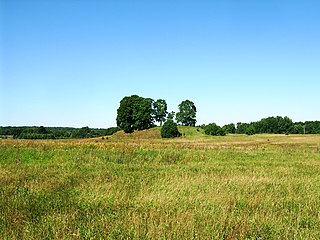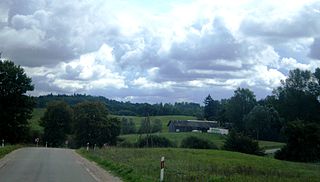
The territory of Lithuania is divided into 10 counties, all named after their capitals. The counties are divided into 60 municipalities : 9 city municipalities, 43 district municipalities and 8 municipalities. Each municipality is then divided into elderates. This division was created in 1994 and slightly modified in 2000.

Lithuania is divided into three layers of administrative divisions. The first-level division consists of 10 counties. These are sub-divided into 60 municipalities, which in turn are further sub-divided into over 500 smaller groups, known as elderships.

A seniūnija is the smallest administrative division of Lithuania. An eldership may comprise a very small region consisting of few villages, one single town, or a part of a big city. Elderships vary in size and population depending on their location and nature. A few elderships make up a municipality. Šilainiai, Dainava, Verkiai, Žirmūnai and Pašilaičiai are the most populous elderates, with population counts over 40,000, around twice the population of some entire municipalities.

Pagėgiai Municipality is a municipality in Tauragė County, Lithuania.

Lithuania is now a country in the Baltic region of Europe.

Vilnius District Municipality is one of the 60 municipalities in Lithuania. It surrounds the capital city of Vilnius on three sides. The municipality is also bordered by Trakai district and Elektrėnai municipality in the west, Astravyets and Ashmyany districts of Belarus in the east, Širvintos, Molėtai and Švenčionys districts in the north and Šalčininkai district in the south.

Jonava District Municipality is one of 60 municipalities in Lithuania.

Lazdijai District Municipality is a municipality in Alytus County, Lithuania.

Tauragė District Municipality is a municipality in Tauragė County, Lithuania

Šilalė District Municipality is a municipality in Tauragė County, Lithuania.

Šeškinė is a fairly new district located in the north of Vilnius, the capital of Lithuania, built in 1977 as a microdistrict. It is located to the east of Justiniškės district, to the south and south-east of Žvėrynas and Šnipiškės elderships, to the north of Fabijoniškės and Pašilaičiai districts, and to the west of Verkiai district.

Antakalnis is an eldership in Vilnius, Lithuania. Antakalnis is one of the oldest, and largest historical suburbs of Vilnius. It is in the Eastern section of Vilnius, along the left bank of the Neris, with the river running along the whole Western side of the district. Antakalnis Eldership is the second-largest in Vilnius, with an area of 77.14 km2 (29.78 sq mi).

Daržininkai is a village in Valkininkų (Valkininkai) eldership, Varėna district municipality, Alytus County, southeastern Lithuania. According to the 2001 census, the village had a population of 78 people. At the 2011 census, the population was 40.

Krokšlys is a village in Kaniavos eldership, Varėna district municipality, Alytus County, southeastern Lithuania. According to the 2001 census, the village had a population of 78 people. At the 2011 census, the population was 50.

Paručiai is a village in Jakėnų eldership, Varėna district municipality, Alytus County, southeastern Lithuania. According to the 2001 census, the village had a population of 11 people. At the 2011 census, the population was 12.

Domeikava is a town in the Kaunas district municipality, located 1 km (0.62 mi) north of Kaunas city municipality. The area surrounding Domeikava has some of Lithuania's most fertile and productive soil.

Pilaitė is an eldership in Vilnius, Lithuania. It occupies 13.92 km2 (5.37 sq mi). According to the 2011 census, it had a population of 20,320. Although being one of the newest elderships in Vilnius, with many buildings under construction, Pilaitė used to be a place with a medieval castle, rebuilt in Renaissance style in the 16th century, which guarded roads to the capital of the Grand Duchy of Lithuania from the West. The castle was destroyed during the Battle of Vilnius and was never rebuilt, but the place retained its name. It is mainly known to Vilnius residents by the two lakes it borders - Salotė and Gėlužis. Pilaitė is also known for its old windmill, which is not far away from Salotė Lake. It is known that there used to be a farm near that windmill, with some of the stone structures still standing.

Didžioji Riešė is a village and administrative centre of Riešė eldership, Vilnius District Municipality, Lithuania. It is located only about 1 kilometre (0.62 mi) north-west of Vilnius city municipality, on the road Vilnius–Molėtai. At the 2011 census, the village had a population of 2,520. That was an increase from the 2001 census which recorded the population of 1,142.

Sudervė is one of the oldest villages in Vilnius District Municipality, Lithuania, it is located only about 8 kilometres (5.0 mi) west of Vilnius city municipality. It is located just north of Vilnius, on the road from Vilnius to Kernavė and is the center of Sudervė eldership. At the 2011 census, the village had a population of 523 and grew to 588 as of 2021 census. That was an increase from the 1989 census which recorded the population of 393 inhabitants.

















